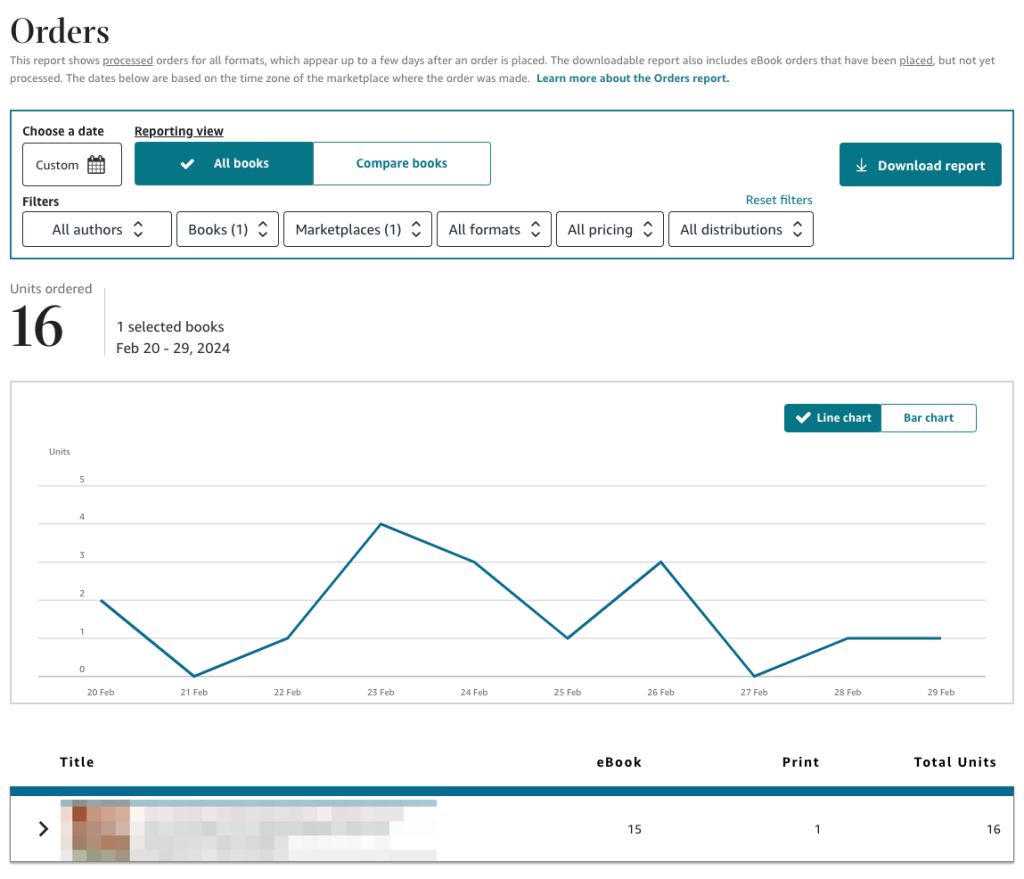04 Mar My Experience with Books Butterfly: A Comprehensive Review
Exploring the effectiveness of book promotion services led me to Books Butterfly, a company known for its bold promises of guaranteed sales.

As an author who dabbles in stories under a cloak of various pen names, finding effective ways to promote a new release is a constant quest. This time around, my journey led me to Books Butterfly, a company boasting the ability to kick-start a book’s sales on Amazon with guaranteed results. The allure of seeing my latest work fly off the virtual shelves was tempting. After all, who wouldn’t want to bolster their book’s presence in the vast ocean that is Amazon’s marketplace? So, with a mix of optimism and curiosity, I decided to give their services a whirl, hopeful that this could be the nudge my book needed.
The Promotional Package Experience with Books Butterfly
The “Silver 50” Promotion package seemed like a sweet spot for an indie author like myself. For $90, Books Butterfly promised not just visibility among their claimed quarter million readers and 87,000+ email subscribers, but something far more tangible: over 50 guaranteed sales or Kindle Unlimited borrows. The package was tailored for books priced at a humble $0.99, aiming to make them irresistible to readers. On paper, it sounded like a dream deal. The thought of at least 50 people choosing my book, propelled by this promotion, was enough to seal the deal.

However, reality soon began to diverge sharply from expectations. The promotional period came and went, and the promised surge in sales turned out to be more of a trickle. A mere 5 sales could be directly tied to the campaign—a far cry from the 50+ guaranteed. The rest? They were the fruits of my own efforts through Amazon Ads and another book review site, each sale traceable, each source verifiable. This stark discrepancy left me puzzled and prompted a deeper reflection on the effectiveness of the promised promotion. It was a moment of reckoning, one that made me question the gap between what was promised and what was delivered.

The Customer Service Exchange with Book Butterfly
Seeking clarity and perhaps a resolution, I reached out to Books Butterfly. My email was straightforward, expressing my disappointment without any frills. I simply laid out the facts: the sales I could directly attribute to their promotion were virtually non-existent. The response I received, however, was unexpected.
Hi.
I have seen only 5 sales during the course of this promotion that I cannot directly attribute to other sources.
What can we do about this?
— my email to Books Butterfly
Their reply was less of a customer service gesture and more of a rebuke. It accused me of ignoring the terms stated multiple times in their emails and on their website. The tone was surprisingly confrontational, highlighting a supposed rarity in their experience with Canadian authors and framing my concerns as an attempt to undermine their business. This was not the dialogue I anticipated when I initiated a polite inquiry about the service I paid for.
We only guarantee the total
We told you this beforehand. You are literally replying to the terms email that states this multiple times. The website also clearly states this in both the terms and the refund policy page.
***
We’re a Canadian company and we are very disappointed you would screw us over like this. Literally the first time we’ve had a Canadian author pull this stunt on us of every single sale ‘came from somewhere else’. We don’t even mind when it is people from countries where $90 is a very big amount for them and perhaps they really need that $90.You expect us to believe that even though 92% of books hit the target and only 8% miss, your book somehow did not get a single sale. So other books are getting 50+ sales and your book magically got zero sales
We’ve done a full refund. It will reach you in 1 to 10 business days. So by Mar 4th to March 15th
In future, we hope you will be a good Canadian and a good human being and not run a promotion with a promotion site and then break terms and screw them over. Or at least if screwing them over be reasonable and don’t steal the ‘every single sale came from somewhere else’ gambit. That’s reserved for Karens and people from countries with 1/10th the spending power
thanks and best of luck
— response from Books Butterfly
Fiona (Books Butterfly)
To their credit, they mentioned issuing a full refund, with a timeline for its completion. Yet, the focus of their message wasn’t on rectifying the situation or offering a solution. Instead, it contained a cautionary tone, advising me on future conduct, sprinkled with a dash of moralizing about being a “good Canadian” and a “good human being.”
This exchange left me pondering the essence of customer service. The interaction was a stark reminder that the bridge between service providers and their clients is built on mutual respect and understanding. When one side of that bridge becomes laden with accusations and assumptions, the gap widens, making it all the more difficult to reach a resolution that satisfies both parties.
I did not know that asking for what was ‘guaranteed’ equated to trying to ‘screw someone over’!
This exchange left me pondering the essence of customer service. The interaction was a stark reminder that the bridge between service providers and their clients is built on mutual respect and understanding. When one side of that bridge becomes laden with accusations and assumptions, the gap widens, making it all the more difficult to reach a resolution that satisfies both parties.
Analysis of the Issues
The interaction with Books Butterfly, from the promotional outcomes to the customer service response, surfaces several critical issues worth dissecting. Each of these reflects not just on a single company’s practices but hints at broader trends that can affect authors and customers across various industries.
Poor Customer Service
Good customer service is the backbone of any successful business, especially in sectors like publishing and book promotion, where success can be as unpredictable as the next bestseller. When promises don’t align with results, the way a company handles feedback or complaints can make or break its reputation. In this scenario, the response to a legitimate concern was not just inadequate; it was dismissive and unprofessional. This approach not only undermines trust but also discourages authors from voicing genuine concerns, setting a precedent that could deter others from seeking or expecting better treatment.
Truth in Advertising
Advertising, at its core, is about persuasion. But when does persuasive become deceptive? The promise of “guaranteed” sales is a powerful allure, one that suggests a level of confidence in the service being offered. However, when the reality falls short of such guarantees, it raises questions about the transparency and honesty of advertising practices. This gap between promise and performance not only affects individual authors but also erodes the overall trust in promotional services, compelling a reevaluation of how success is defined and communicated.
You cannot use the word ‘guaranteed’ then put an asterisk next to it and say ‘not guaranteed’.
Respect in Customer Interactions
The foundation of any professional interaction, even more so in digital communications, should be respect. The use of derogatory terms and assumptions about a customer’s intentions or nationality not only crosses the line of professional decorum but also alienates and offends. Respectful disagreement and constructive feedback are pillars of business communication. When these are replaced with accusations and insults, it not only reflects poorly on the company but also damages potential and existing relationships with a broad spectrum of authors and customers.
National Stereotypes and Assumptions
The assumption that Canadians — or indeed customers from any particular country — can afford to be cavalier about spending reflects a broader issue of national stereotypes creeping into business practices. Such stereotypes are not just unprofessional; they’re harmful, perpetuating misconceptions that have no place in business transactions. This approach overlooks the diverse financial realities of individuals across the globe and undermines the universality of customer service standards.
Use of “Karen”
Employing the term “Karen” in a professional exchange is emblematic of a deeper disconnect. It’s a term that’s come to signify entitlement and unreasonable demands, yet applying such labels in response to valid customer feedback trivializes genuine concerns. It’s indicative of a culture that’s quick to dismiss rather than engage, a stance that can alienate not just the individual in question but also a wider audience who may see themselves in that situation.
The issues at hand — poor customer service, misleading advertising, lack of respect, reliance on stereotypes, and the casual use of derogatory terms — paint a picture of a company and an industry at odds with the principles of fairness, transparency, and respect. Addressing these not only requires internal reflection but also an industry-wide commitment to higher standards of conduct. For authors navigating the promotional landscape, these experiences serve as a reminder of the need for vigilance and the importance of holding service providers to account.
Navigating the complexities of book promotion in today’s digital age presents a unique set of challenges and opportunities for authors. The promise of guaranteed sales is enticing, offering a beacon of hope for visibility in a saturated market. However, as this experience illustrates, the journey from promise to reality can be fraught with unexpected hurdles, not least of which include the quality of customer service received, the truthfulness of advertising claims, and the respect afforded to customers during interactions.
So now what?
The encounter with Books Butterfly serves as a cautionary tale, underscoring the importance of vetting promotional services thoroughly and setting realistic expectations. It’s a reminder that while the allure of guaranteed results is strong, the foundation of any service should be built on transparency, reliability, and mutual respect. Authors, in their pursuit of success, should not have to navigate misleading claims or confrontational customer service.
Moreover, this experience highlights a broader issue within the realm of customer service and business ethics. It’s a call to action for businesses to uphold the principles of honesty, professionalism, and respect in all their dealings. Stereotypes, assumptions, and derogatory terms have no place in professional exchanges. Every customer deserves to be treated with dignity, and every concern should be addressed with the intent to resolve.
As we move forward, let this be a lesson to both service providers and customers alike. For service providers, let it be a reminder of the value of integrity and respect in building long-term relationships with your clientele. For fellow authors and customers, let it be a guide in navigating promotional services, armed with the wisdom to seek out those that not only promise but also deliver on those promises with professionalism and respect.
So, while the road to successful book promotion is rarely straightforward, it is paved with lessons on the importance of choosing partners who value their customers as much as they value their own services. Let’s aim for a future where promotional services and their customers can collaborate based on mutual respect, transparency, and a shared goal of success.
If you want to help, you can buy my old book — a children’s fiction novel. You can find it here!


No Comments